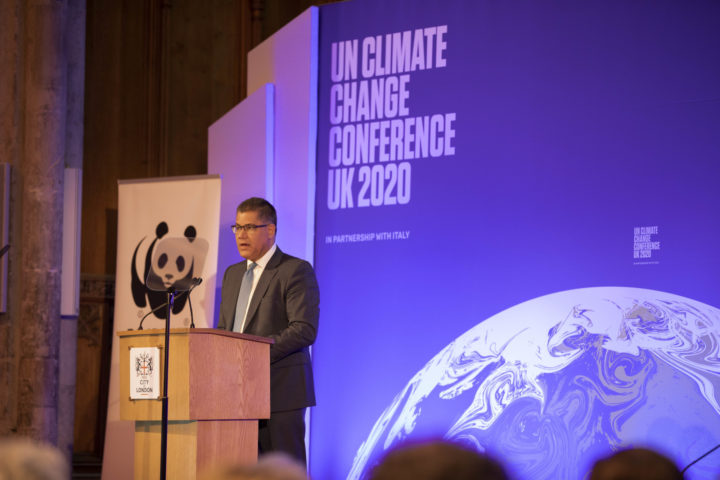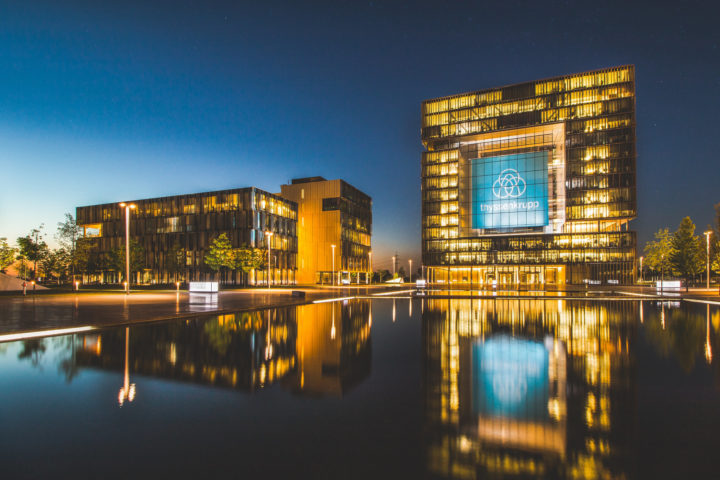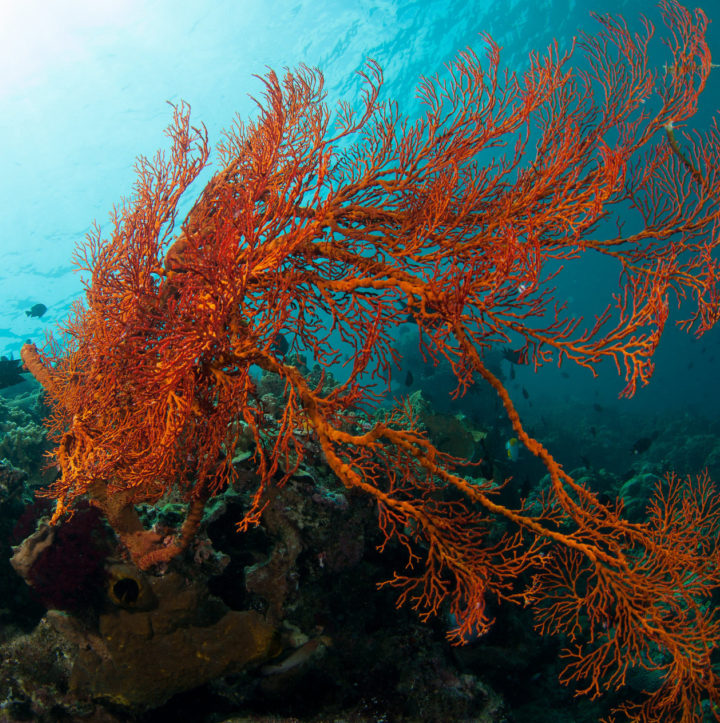Climate change re-emerges from the Covid smog
Two virtual international summits show the pause button is being released on climate change

By Richard Black
@_richardblackShare
Last updated:
If you’ve been wondering what was happening on the international climate change agenda given the postponement of COP26, the annual UN summit due to have taken place in Glasgow in November, the last 10 days have given a few clues, as nations and their leaders lifted their eyes up from the coronavirus crisis and began to talk.
In two gatherings whose names don’t trip off everyone’s tongue, the Placencia Ambition Forum and the Petersberg Climate Dialogue, ministers of nations from Britain to Belize have been putting principles forward, declaring what needs to be done and in some cases, setting out vague national plans.

As speakers in a multiplicity of nations and time-zones wrestled with audio-video links made compulsory by coronavirus, one theme dominated: that as the economies of the world rebuild after the sharpest slowdown in recent decades, the rebuilding, the re-growth, should be ‘green’.
For those who’ve been nervous that the UK government’s climate ambition would wither in the harsh light of Covid-19, there was plenty of relief.
Business Secretary and COP26 President Alok Sharma told the closing session of the Placencia Ambition Forum, hosted by Belize on behalf of the smallest and most climate-vulnerable island nations, that as countries emerge from the emergency phase of Covid-19, ‘…we must collectively support a green and resilient recovery that helps us deliver our existing commitments.’
And just yesterday, in a video message sent on behalf of Prime Minister Boris Johnson to the closing session of the Petersberg Dialogue, Foreign Secretary Dominic Raab was even more forthright.
‘Nations will begin to emerge from lockdown and look to fire up their economies once again,’ he said.
‘When that happens it will be the duty of every responsible government to see that our economies are revived and rebuilt in a way that will stand the test of time.
‘That means investing in industries and infrastructure that can turn the tide on climate change.’
Steely determination
Of course the UK wasn’t alone on these semi-global stages, and leaders of other nations espoused similar sentiments.
As founder of the annual Petersberg Climate Dialogue back in 2010, German Chancellor Angela Merkel is always a particularly significant figure here – and she came to the ‘green recovery’ party too, declaring: ‘If we look at the economic damages that the coronavirus crisis has caused in our respective budgets, the more important it will be to keep a firm eye on climate action when we introduce economic stimulus programmes.’

She also espoused continuing support for the EU ‘Green Deal’ and a bloc-wide commitment and plan to reach net zero emissions by 2050.
In this, perhaps she was inspired by the letter she received just before the meeting began from more than 60 major German companies including steel giants ThyssenKrupp and Salzgitter, chemicals company Covestro and the world’s biggest producer of buildings aggregates HeidelbergCement, who asked her administration to ‘…closely link economic policy measures to overcome both the climate crisis and the coronavirus crisis.’
Similar messages came from many leaders of smaller nations and from UN Secretary-General António Guterres, who outlined a six-point proposal for global economic rebuilding that would tackle the legacies of coronavirus, fossil fuel emissions, rampant land use expansion and isolationist politics in one fell swoop: deliver clean, fair, job-rich growth, end fossil fuel subsidies and put a price on carbon, develop ‘green’ not ‘grey’, and work together as an international community.
There were frequent nods too to the formal United Nations negotiations ahead of COP26, whenever it should take place. The Alliance of Small Island States (AOSIS) – all of which have already committed to end their carbon emissions by 2050 – were particularly strong on that point, declaring: ‘Action must begin now and increased ambition must be communicated now.’
In particular, they want major emitting nations to increase the speed of their carbon-cutting commitments in the Paris Agreement to 2030 (their NDCs), increase the scale of financial assistance going forward, and act to help protect struggling societies now, noting that ‘…the human tragedy of COVID-19 is still unfolding in developing countries which had already begun experiencing an economic downturn well before the pandemic and which are already compromised because of the unrelenting impacts of climate change.’
…requests with which the UK, according to Alok Sharma, is already on board.
As is the European Commission, according to its First Vice-President Frans Timmermans, who declared in the Petersberg Dialogue that the EU should show leadership across the climate change agenda ‘…by sticking to the agenda as though a COP would take place in November this year.’
More twists in this virus
So – job done? Convinced that everything is back on track, that coronavirus no threat to getting net zero done and implementing the various 2020 commitments under the Paris Agreements?

Well: that may be a step too far. As governments in Europe begin cautiously to lift restrictions, the future course of the virus here remains unclear, as does the impact of lockdowns on people’s psyches, on the economy and on individual business sectors.
The US appears a patchwork at best, major developing nations such as Brazil and India are grappling with a toxic cocktail of poverty, coronavirus and problematic leadership, while Covid-19 data from Russia appear as unreliable as its record on sports doping. We are emphatically not out of the viral woods yet, not by a long chalk.
Plus not everyone in business is united in supporting the notion that post-Covid economic stimulus plans should be Paris Agreement-compatible.
Some companies in high-carbon sectors such as airlines are simply asking for dosh, despite acknowledgements from Lufthansa, British Airways and others that air travel is unlikely to return to its former level.
And then there’s fossil fuel production – most of which, across the world, is state-owned and therefore has hands directly on the levers of power.
What outcomes those statements by Ms Merkel, Mr Raab, Mr Sharma, Mr Timmermans and others ought logically to lead to is a theme we’ll be returning to in the coming months – probably quite often, I would think.
Nevertheless: for anyone who believed governments had completely taken their eyes off the international climate process, these two virtual summits are a corrective. Major governments have taken part, at the highest level in many cases. Business has acknowledged both that fact and the drivers of change.
As we peer ahead from the acute coronavirus lockdowns to the chronic phase ahead, we can most definitely see climate change firmly still on the international agenda. And given how hard the viral toxic shock has hit our societies, perhaps that’s not a bad outcome… for now.
Share